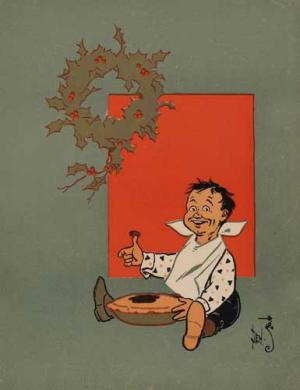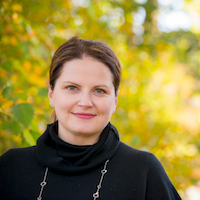I’m a pretty enthusiastic person. In casual conversation, I don’t shy away from hyperbole and tend to think a lot of things are “the best thing ever.” But truly, truly, getting a position with NCSE, having my very own NCSE avatar? Best. Thing. Ever.
This is my first blog post as the editor of Reports of the National Center for Science Education. I have admired and been in awe of NCSE for more than a decade and it’s simply thrilling to be joining the team. My passions are science and  communication. So far, I have made a career on the periphery of both academia and education, never feeling like I belong in either world 100%. But I do belong here 100%. NCSE represents the perfect amalgamation of my experiences, talents, and goals.
communication. So far, I have made a career on the periphery of both academia and education, never feeling like I belong in either world 100%. But I do belong here 100%. NCSE represents the perfect amalgamation of my experiences, talents, and goals.
The outgoing editor, Andrew J. Petto, has been at the helm of RNCSE for 19 years. A respected academic and outstanding educator, he is deeply enmeshed into NCSE. I, on the other hand, am not firmly anything—not quite an academic, not quite an educator—and I have not met any of my new colleagues face-to-face yet. But here I am, the brand-new editor of RNCSE. I’ve been working my fingers to the bone already, and loving every minute of it.
Best. Thing. Ever.
And speaking of fingers…
An editor friend of mine asked me the other day to read an activity she’s developing for middle school, one of the soon-to-be plethora of activities aligned to the Next Generation Science Standards. This particular one was about evolution, and asked kids to look for variation in a number of human traits and then infer adaptive explanations. For example, they could measure finger lengths and then come up with a reason that longer fingers are more adaptive than shorter ones. What followed was a half-hour conversation in which I tried my best to explain why that was a terrible idea for an activity. And here’s the thing—this friend of mine, she’s super-smart and has an advanced degree in biology from Harvard University. Now, she completely understood, once we discussed it, why that kind of activity will reinforce misconceptions about evolution (that every feature is adaptive, that you can infer a structure’s adaptive value from its current function, etc.), but we still had to have the discussion.
I have worked for the past decade-plus with scientists, science writers, and science educators, all of whom have the best intentions in the world, all of whom would have no problem declaring their allegiance to the cause of an authentic science education grounded in evolution. But—and I don’t want to point fingers at anybody here—many of them would have not batted an eye if that activity had come across their desks. And this, I believe, is one of the most important truths we have to face: many of us don’t really get evolution. It’s such a beautiful, simple, and powerful idea, but it’s also finicky, demanding vigilant attention to detail to be properly explained and explored.
One of my ambitions in joining NCSE is to further efforts to help scientists, teachers, and even the public become better communicators when it comes to evolution and climate change. If you have ideas on how to do that, please let me know: I like to keep my finger on the pulse of innovative ideas in science education. For now, I’ll keep pecking away, one misconceived activity at a time. Wish me luck, and for my part, I’ll keep my fingers crossed.

